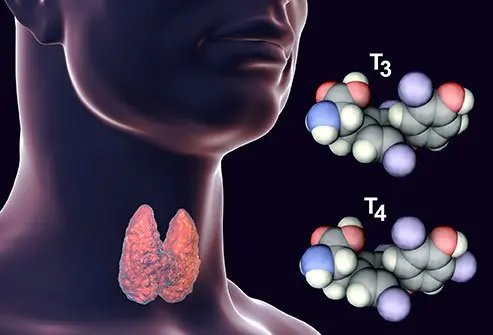Is your thyroid gland functioning sufficiently to produce the necessary hormones? Here's How to Know.
Has anyone been experiencing tiredness, fog, or a lack of motivation lately? Please elaborate. The temptation to blame your busy schedule, lack of sleep, or stress could be avoided. At times, small fluctuations in energy levels, mood, and metabolism can be attributed to a smaller factor than the walnut: your thyroid gland.

What Exactly Is Hypothyroidism?
A butterfly-like gland located at the base of your neck is known as your thyroid. The gland, despite its small size, has a significant impact on the functioning of your body. T4 andT3 are produced by it, serving as a type of internal power switch that regulates metabolism, body temperature, heart rate, and brain activity.
Hypothyroidism occurs when the thyroid glands slow down and fail to produce sufficient hormones. Why? This condition affects approximately 5 out of every 100 individuals, which is more prevalent than people realize. Signs of adipose symptoms such as constant tiredness, dry skin, brittle hair and other cold symptoms can be concealed by the body.
How Doctors Check Your Thyroid.

The good news? Diagnosing hypothyroidism is straightforward. A basic blood test to measure thyroid-stimulating hormone (TSH) is the first step for most doctors. Your body's thermostat and thyroid are the same, meaning they both function as a source of energy. If the temperature in the room is too cold, the thermostat will raise TSH levels to stimulate the thyroid gland to produce more hormones, which would do this to you.
If you have a high TSH level, your doctor will usually check your free T4 level using the same blood sample. The presence of hypothyroidism is usually indicated by a high TSH and low T4 levels.
The first indicator is often TSH. The hormone can increase before your thyroid hormone levels drop, making it a sensitive tool for early detection of symptoms.
In the event that TSH is not the answer, then what happens?
Normal TSH ranges from 0.4 to 5.0 mU/L. If your TSH is above 10, it is a typical indication of hypothyroidism. However, there is a gray area where those with TSH levels between 5 and 10 but above normal range. This intermediate state is known as subclinical hypothyroidism.'".
Here's where things get tricky. A few people diagnosed with subclinical hypothyroidism exhibit symptoms that indicate they are perfectly fine and do not require treatment. Although their numbers aren't dramatically abnormal, some people do notice a change once they start taking thyroid medication.
A Personalized Approach Matters.

In the event of entering that gray zone, what would be the next step? The advice provided by your doctor may be tailored to your specific circumstances:
Normal T4 levels may not provide any benefits from medication.
The use of thyroid therapy is a common practice among women in their early stages of pregnancy to ensure proper hormone levels support.
For individuals with low-normal T4 levels, a short 6-week medication trial may be beneficial.
Irrespective of your decision, follow-up testing is essential sometimes within 6 weeks and others within just 6 months.
The Bottom Line.
Your thyroid is diminutive, yet powerful. When your body fails, it can have a significant impact on many areas of one's health such as skin, energy levels, mood patterns or metabolism. The good news? Rapid blood tests frequently provide precise results, while treatment is often effective and uncomplicated.
Those of you who have been struggling with lack of endurance and strength should not let it go. If you talk to your doctor and have a basic lab test, it may be possible to determine if your thyroid is functioning properly or requiring additional assistance.
What's Your Reaction?




















